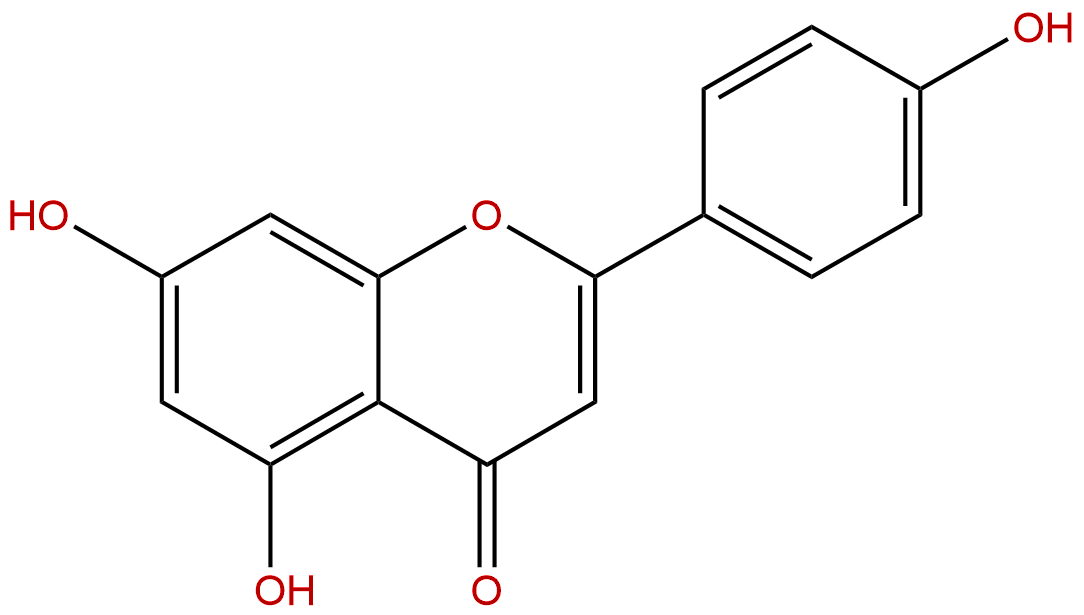
ApigeninCAS No.:520-36-5
|
||||||||||
 |
|
|
||||||||

| Catalogue No.: | BP0177 |
| Formula: | C15H10O5 |
| Mol Weight: | 270.24 |
Product name: Apigenin
Synonym name: 4',5,7-Trihydroxyflavone; Apigenol; Pelargidenone; Versulin
Catalogue No.: BP0177
Cas No.: 520-36-5
Formula: C15H10O5
Mol Weight: 270.24
Botanical Source: Found free or as glycosides in the stems, roots, leaves, seeds or fruit of a very wide range of plant spp. Found also in some fossil leaf tissues
Physical Description: Yellow powder
Type of Compound: Flavonoids
Purity: 95%~99%
Analysis Method: HPLC-DAD or/and HPLC-ELSD
Identification Method: Mass, NMR
Packing: Brown vial or HDPE plastic bottle
Storage: Store in a well closed container, protected from air and light. Put into refrigerate or freeze for long term storage.
Whenever possible, you should prepare and use solutions on the same day. However, if you need to make up stock solutions in advance, we recommend that you store the solution as aliquots in tightly sealed vials at -20℃. Generally, these will be useable for up to two weeks.
The product could be supplied from milligrams to grams, up to kilograms
Inquire for bulk scale.
Descriptions:
Apigenin, a naturally occurring plant flavone (4', 5, 7,-trihydroxyflavone) abundantly present in common fruits and vegetables including parsley, onions, oranges, tea, chamomile, wheat sprouts and some seasonings, has been shown to possess remarkable anti-inflammatory, antioxidant and anti-carcinogenic properties. [1]
Apigenin may have the potential for prevention and therapy for prostate cancer, apigenin treatment resulted in induction of apoptosis as determined by DNA fragmentation, PARP cleavage, fluorescence microscopy and flow cytometry, also resulted in down-modulation of the constitutive expression of NF-kappaB/p65.[2]
Apigenin has anti-hepatoma activity is as effective as 5-FU and its apoptotic mechanism might be mediated through the p53-dependent pathway and the induction of p21 expression.[3]
Apigenin possesses therapeutic potential against cancers, the combination of gemcitabine and apigenin enhances anti-tumor efficacy through Akt and NF-kappa B activity suppression and apoptosis induction.[4]
References:
[1] Patel D, Shukla S, Gupta S. Int J Oncol, 2007, 30(1):233-45.
[2] Gupta S, Afaq F, Mukhtar H. Oncogene, 2002, 21(23):3727-38.
[3] Chiang, Lien-Chai, Ng, et al. Cancer Lett, 2006, 237(2):207-14.
[4] Lee S H, Ryu J K, Lee K Y, et al. Cancer Lett, 2008, 259(1):39-49.
[5] Yang H Y, Wang X M, Gang D U, et al. Lishizhen Medicine & Materia Medica Research, 2008, 19(12):2994-5.
HPLC of Apigenin
